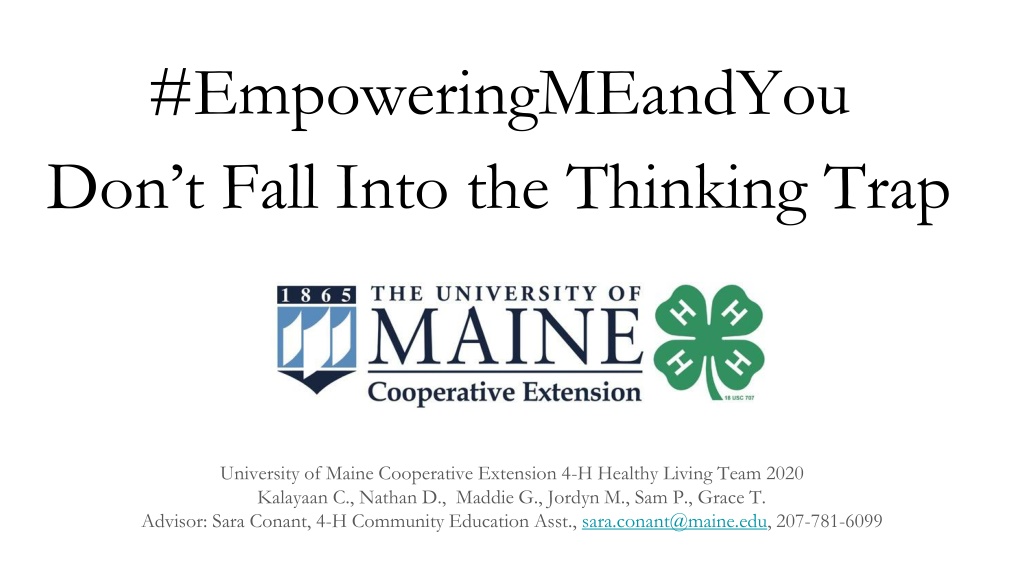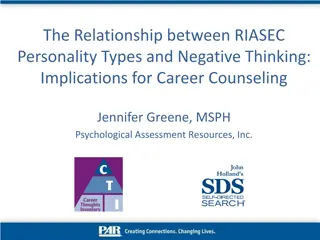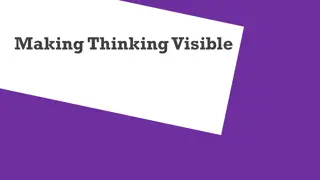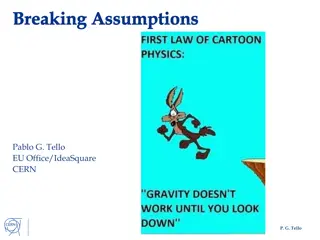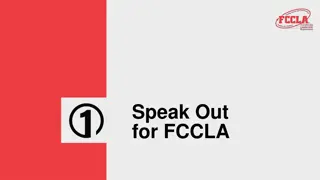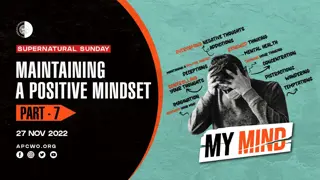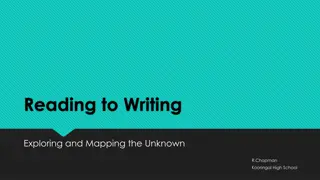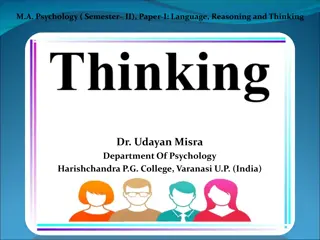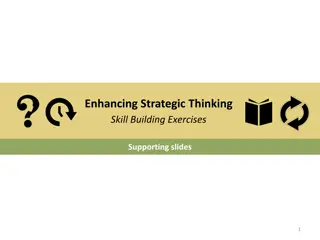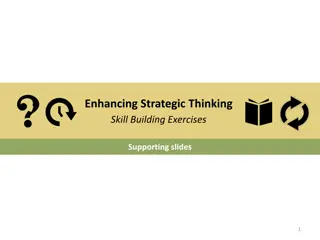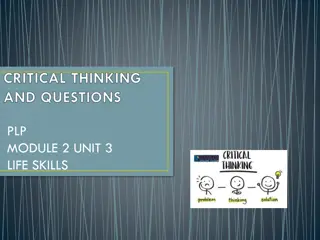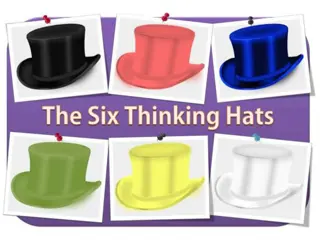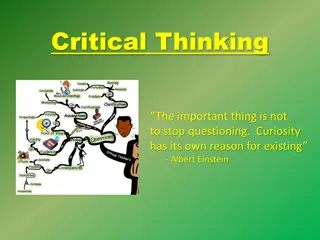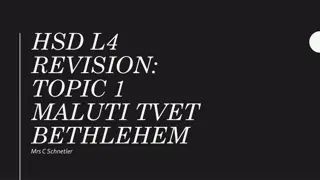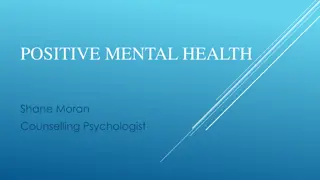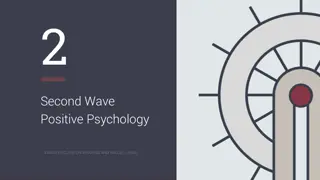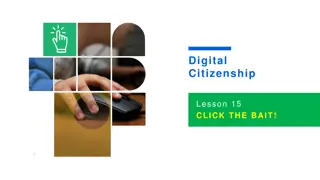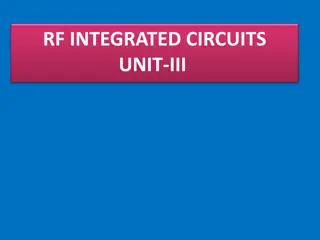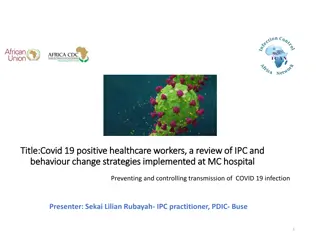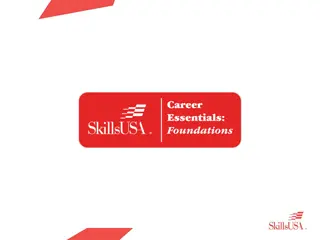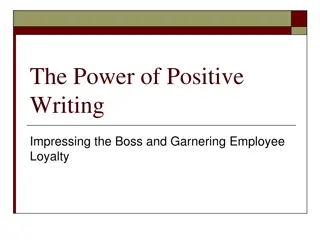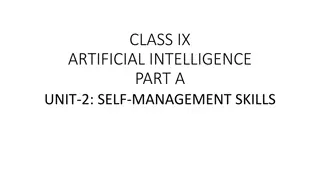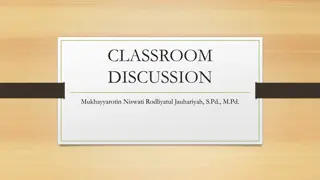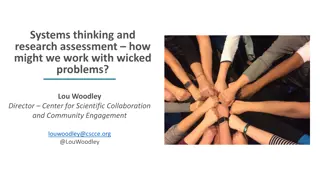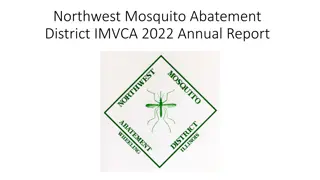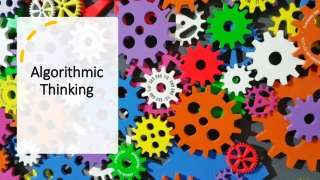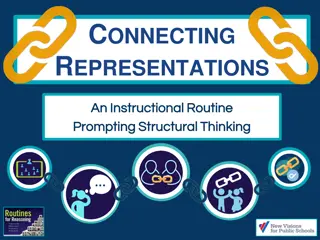Understanding Thinking Traps: Empowering Positive Thoughts
Habitual negative thought patterns, known as Thinking Traps or Cognitive Distortions, can lead to harmful beliefs like personalization, jumping to conclusions, all-or-nothing thinking, labeling, discounting the positives, and more. Recognizing these patterns is crucial for fostering healthier thinking habits. The 4-H Healthy Living Team from the University of Maine Cooperative Extension provides valuable insights on escaping these detrimental cycles and empowering positive mental attitudes.
Download Presentation

Please find below an Image/Link to download the presentation.
The content on the website is provided AS IS for your information and personal use only. It may not be sold, licensed, or shared on other websites without obtaining consent from the author. Download presentation by click this link. If you encounter any issues during the download, it is possible that the publisher has removed the file from their server.
E N D
Presentation Transcript
#EmpoweringMEandYou Don t Fall Into the Thinking Trap University of Maine Cooperative Extension 4-H Healthy Living Team 2020 Kalayaan C., Nathan D., Maddie G., Jordyn M., Sam P., Grace T. Advisor: Sara Conant, 4-H Community Education Asst., sara.conant@maine.edu, 207-781-6099
What are Thinking Traps/Cognitive Distortions? Habitual negative thought patterns Coping mechanism that develops when someone faces severe or prolonged adverse/negative experiences
Personalization Blaming or holding yourself responsible for something that wasn t entirely your fault or in your control Can lead to feelings of guilt, shame, & inadequacy
Jumping to Conclusions You negatively interpret things without facts to support the conclusion Mind-Reading: Without supporting facts or digging deeper you assume others are thinking negatively of you Fortune-Telling: You predict negative future outcomes as if you know that they will certainly be true
All or Nothing You look at things in absolute black and white categories You are either a success or a failure. Your performance was totally good or totally bad. I always fail when I try to do something new; I fail at everything I try
Labeling An extreme form of All or Nothing You identify yourself by your shortcomings or failures. Instead of saying I failed at this one task you attach an extreme negative label to yourself such as I am a complete failure Labeling implies something is wrong with yours or someone else s character or essence rather than their thinking or behavior
Discounting the Positives You reject positive experiences by insisting they don t count Even if you do a good job you tell yourself that it wasn t good enough or that anyone could have done it just as good
Escaping the Thought Tornado I am not yet as confident as I would like to be when in a group setting. There may be others feeling the same way as me too. I ve been told I have nice laugh and a good sense of humor. I enjoy being outdoors with my close friends. I have pretty eyes. I don t feel confident in myself when I m in a group, everyone is better looking, funnier, or more personable than I am.
Climbing out of the Trap Identify the Distortion Write down your negative thoughts to help you determine which thinking trap you re falling into Define Terms When you label yourself as something, ask yourself what that term actually means - really flesh out the definition Thinking in Shades of Gray Evaluate your problem on a range of 0 to 100 rather than 0 OR 100. The Survey Method Ask questions of others whom you trust to test your assumptions
Resources National Institute for Mental Health: Factual information about a variety of mental health topics, including stress; www.nimh.nih.gov/health/index.shtml Teen Line: Talk, Text, Chat with trained teens about mental health support. Available 6:00 - 10:00PM PST. If these times do not work for you, they also are available by email teenlineonline.org or 1-800-852-8336 or text "TEEN" to 839863 NAMI Maine Teen Text Line: Open 12pm - 10pm. This peer support text line is for youth 14-20 years old and staffed by individuals under 23 years of age. Text them at (207) 515 - 8398, National Suicide Prevention Lifeline: If you or someone you know is struggling with their mental health. Available 24/7 to call or chat online. Free & confidential suicidepreventionlifeline.org/talk-to-someone-now/ or 1-800-273-8255
